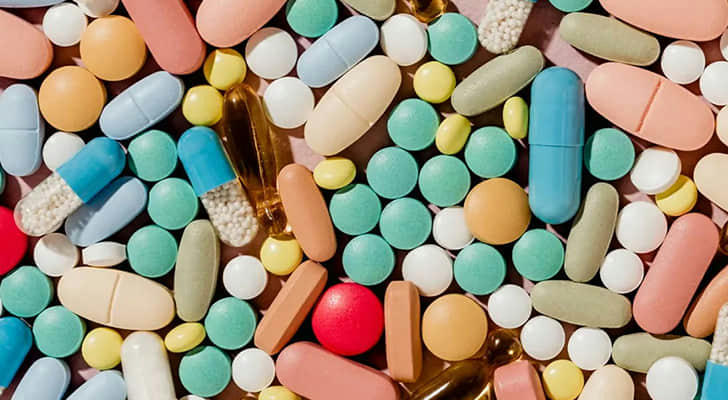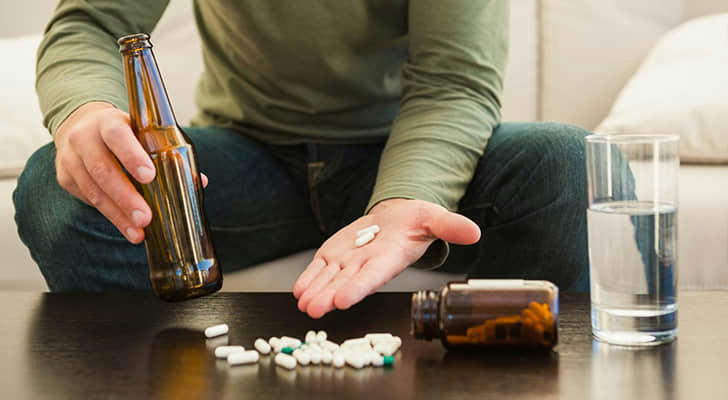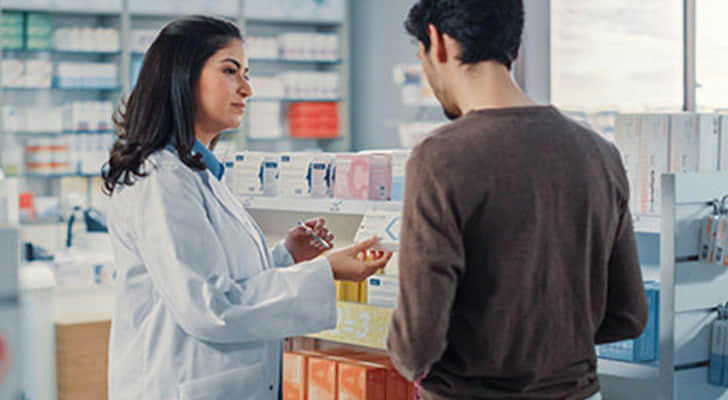How Drug Interactions Impact Your Wellbeing
When a medication works as it should, it helps improve your health or makes you feel better. But sometimes, things can go wrong if that medication doesn't mix well with something else you're taking, like another medicine, certain foods, or even alcohol.
This situation is called a drug interaction. Drug interactions are a complex but important aspect of healthcare. They can occur not only between medications but also with dietary supplements, herbal products, and certain foods. Understanding these interactions involves knowing how different substances can affect each other's effectiveness or safety. Healthcare providers, including pharmacists, play a crucial role in identifying and managing potential interactions to ensure that treatment plans are optimized for patient safety and therapeutic effectiveness. Patients should always disclose all medications and supplements they are taking to their healthcare team to minimize the risks associated with drug interactions. It can cause your medication to stop working properly, become less effective, or even become too strong, which might lead to side effects.
The more you learn about drug interactions, the better you'll be able to avoid them. Understanding drug interactions is crucial for safe and effective medication management. Beyond medications, interactions can also occur with supplements, herbal remedies, and even certain foods like grapefruit or high-vitamin K greens. It's important to communicate openly with healthcare providers about everything you consume to minimize risks. Pharmacists are valuable allies in this regard, offering expertise on potential interactions and ensuring your treatment plan aligns with your overall health needs. Here's a rundown of what you need to understand.

What Are the Different Types of Drug Interactions?
There are three main types:
1. Drug-drug interactions: This happens when one medication reacts with another. For instance, combining a cough medicine and a sleep aid might affect how each works.
2. Drug-food/drink interactions: Certain foods or drinks can affect how a medication works. For example, drinking alcohol while taking certain medications can be risky. Some vitamins and supplements can also interact with medicines.
3. Drug-condition interactions: If you have certain health conditions, taking specific medications might be risky. For example, if you have high blood pressure and take a decongestant for a cold, it could raise your blood pressure even more.
What Combinations of Drugs Should You Avoid?
There are several combinations you should steer clear of:
•Taking multiple drugs that contain the same active ingredient can lead to side effects or even an overdose. •Combining blood-thinning drugs with NSAIDs like ibuprofen can increase the risk of bleeding. •Mixing pills with antihistamines can slow down your reaction time, making activities like driving unsafe.
Some other dangerous combinations include NSAIDs with blood pressure medications, certain thyroid drugs with acid-blocking medications, and antidepressants with other drugs that affect serotonin levels.
What Are Common Examples of Drug Interactions?
Certain foods and drinks can also interfere with medications:
•Alcohol can cause serious side effects when mixed with medications for allergies, colds, cholesterol, and other conditions. Always check labels for alcohol warnings. •Grapefruit and grapefruit juice can interact with statins, antihistamines, blood pressure drugs, and more. Check with your doctor or pharmacist before consuming grapefruit products with your medication. •Foods rich in vitamin K, like leafy greens, can interact with the blood thinner warfarin. It's important to maintain a consistent intake. •High-potassium foods like bananas can affect ACE inhibitors used for blood pressure. Your doctor may advise you on managing potassium levels.

Can You Take All Your Medications Together?
It's crucial to follow your doctor's instructions on how to take your medications. Even if you space them apart during the day, some medications can still interact. Your doctor might adjust your dosage or prescribe a different medication to prevent interactions.
What Are the Signs of a Drug Interaction?
Symptoms vary depending on the medications involved. You might experience more side effects than usual or find that your medication isn't as effective as before. If you notice any concerning symptoms, contact your doctor promptly.
How Do Drug Interactions Occur?
There are several ways medications can interact:
•If two drugs cause similar side effects, taking them together might intensify those effects. •Sometimes, one drug's unwanted effects can counteract another drug's intended effects. •Certain supplements can prevent the absorption of medications in the intestines. •Your body's metabolism of medications can be affected by other drugs, speeding up or slowing down their effectiveness.
How Can You Check for Drug Interactions?
Always keep your doctor informed about all medications, vitamins, and supplements you're taking. This is especially important if you see multiple doctors who prescribe medications for you. Show them a list of your medications or bring the actual packages to your appointments.
Before starting a new medication, ask your doctor or pharmacist about potential interactions with your current medications, any foods or drinks to avoid, and if any of your health conditions might complicate matters.
Pharmacists are also valuable resources for checking drug safety and can coordinate with your doctors to prevent interactions. They can provide detailed information about medications, including possible interactions and active ingredients listed on labels.
Understanding drug interactions empowers you to manage your health more effectively, ensuring that your medications work as intended without compromising your safety.

